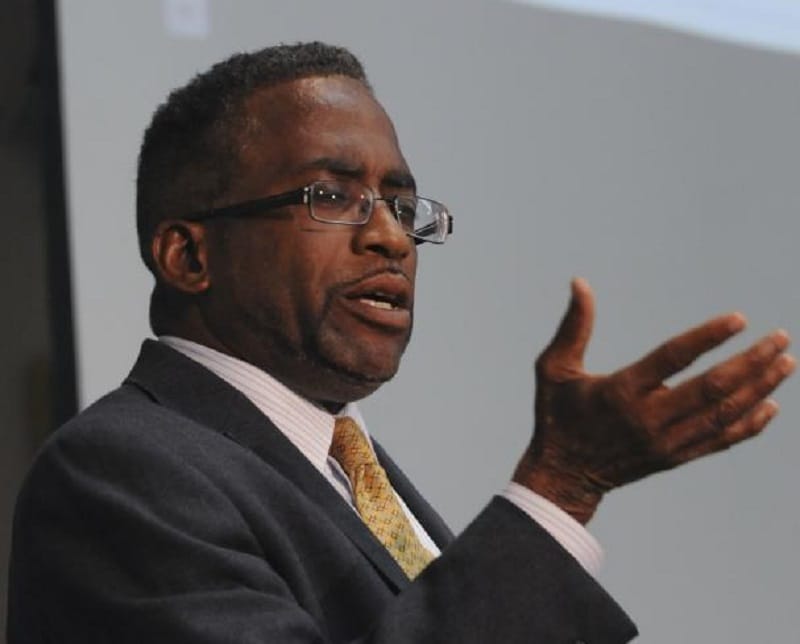Broadband Roundup: Trump Administration Crackdown on Counterfeit Sales, Barbershops Against Strokes, Surprises on Rural Funding
President Trump signed an executive order Friday to limit the importing of counterfeit goods from abroad over e-commerce networks, like Amazon, Shopify, and WalMart.com. In a conference call with press, Assistant to the President for Trade and Manufacturing Policy Peter Navarro expressed concern tha
Adrienne Patton

President Trump signed an executive order Friday to limit the importing of counterfeit goods from abroad over e-commerce networks, like Amazon, Shopify, and WalMart.com.
In a conference call with press, Assistant to the President for Trade and Manufacturing Policy Peter Navarro expressed concern that e-commerce is afforded leniency that traditional stores are denied, making it easy for cheap or even dangerous products to enter the United States.
Navarro said days after new products are release in the United States, “counterfeiters in places like China can set up competing websites offering knockoffs made with inferior materials at a third of the cost and sold at half the cost.” The United States receives about one million packages daily from China and 100,000 of those imports are either fake or harmful, said Navarro.
“An acceptable rate of customs discrepancies for counterfeit products and other contraband, such as fentanyl or gun silencers, coming in from countries like China should be well under 1 percent,” said Navarro. However, he continued, “we are seeing 10 times that rate or higher.”
Enforcement will “include new bonding requirements on high-risk importers, civil fines and penalties, debarment and suspension of bad actors, enhanced inspection of non-compliant posts, and mechanisms to close the so-called border town fulfillment shell game.”
Craig Settles publicizes telehealth awareness through barbershops against strokes
Broadband enthusiast Craig Settles is spearheading a pilot program promoting telehealth and prevent strokes by detecting hypertension. Five years after Settles first suffered a stroke, he has galvanized barbershops and salons across 10 cities to participating in a three-month pilot program.
Barbershops and salons will be in charge of three steps, writes Settles.
First, “conduct customers’ blood pressure readings using digital monitors with USB connections.”
Second, “use VSee Clinic from telehealth vender VSee to send the data to the shop’s healthcare partner.”
Third, “the partner stores the data and sends appropriate health content back to the customer.”
The owner of Urban Kutz Barbershops in Cleveland, Waverley Willis, said the program is likely to be successful because customers trust their barbers.
Settles is focusing on cities located in the “stroke belt” of the United States, where death from strokes are most commont. Pilots are taking place in Cleveland, Chicago, and New York City.
Settles, host of the podcast Gigabit Now, is spearheading the pilot in an attempt to help communities with very little or no broadband access.
Public Knowledge raises concerns about surprise change to Rural Digital Opportunity Fund
As public interest groups look into the details surrounding the Federal Communications Commission’s vote in favor of the Rural Digital Opportunity Fund last Thursday, some are expressing alarm at some surprise changes announced at the meeting.
The program now prohibits communities who are already receiving state money for broadband deployment from receiving funds from the new program.
Public Knowledge, a non-profit that advocates for broadband access, released a statement from the Senior Vice President Harold Feld calling for an explanation of the FCC’s change.
“Even read narrowly, this would appear to cut off millions of unconnected rural Americans from a program designed explicitly to help them. According to a Pew report published in December 2019, 35 states have funds that directly subsidize broadband. Numerous other states have funds that might qualify as a ‘subsidy’ or ‘enforceable broadband deployment obligations,’ depending on how the FCC Order defines these terms,” said Feld.
Feld stated that the change “makes no sense.” “We should encourage states to take initiative and reward those that rise to the challenge,” suggested Feld.
The program allocates $20.4 billion into broadband deployment for communities that do not have broadband access at speeds of 25/3 Megabits per second download/upload. In a two-phase initiative that extends over the next decade, democratic commissioners also shared serious concerns about the change and the lasting effects.








Member discussion